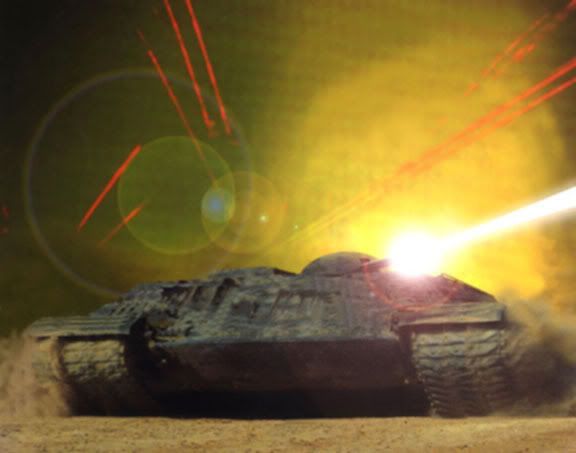
Posted on 03/25/2012 2:02:42 PM PDT by DogByte6RER
How will we get around in the post-apocalypse?
One of the irritating things about many post-apocalyptic movies in TV shows is that everyone drives everywhere, with little thought about alternative modes of transportation. But how will we get around after armageddon? We weigh the post-apocalyptic transit options.
Hopefully, down the line, we'd see groups of people teaming up to bring back trains, but in terms of personal transit in the immediate post-apocalypse, here are a few options:
Cars: Ah, the noble car, transit mode of choice in far too many post-apocalyptic fictions. For some people, cars might be a logical choice; you might need to move lots of cargo on a regular basis or outrun zombie hordes. Plus, the car is a great status symbol; it indicates that you're so well-off that you can spend your time hunting for gas (or having your minions do it for you). But for a lot of folks, cars are just the things you'll be living in once they completely break down.
Pros: Cars are fast, can carry lots of cargo, and don't leave you exhausted after a long day of scavenging.
Cons: The biggest problem cars pose is that you'll have to keep them running. Cars require fuel, engine oil, and batteries, not to mention spare parts. Presumably, there's no AAA in the post-apocalypse.
Things to consider: It's important to consider your choice of post-apocalyptic car. Maximizing fuel mileage is important, but so is driving a common enough model that you can snag spare parts if need be. Of course, you'll want to keep extra gas, batteries, and tires on hand at all times, and always know where you can get more. Oh, and if you're going to drive a car, you'd better be sure you know how to fix it. Biofuel is a great option for long-term post-apocalyptic survival, but remember, if your car runs on vegetable oil, you'll need a surplus of vegetables that you can press for oil.
Motorcycles: Leaner and meaner than cars, motorbikes require less gas than cars, motorbikes come with similar advantages and disadvantages, but with certain tradeoffs. However, that lack of storage space will hinder your ability to keep fuel on hand. At least it looks cool.
Pros: Require less fuel than a car and can be simpler to maintain — and they've still got the advantages of speed and low personal energy expenditure.
Cons: Little storage, which also means less storage for fuel and spare parts. Plus, they're noisier than cars, which could be an issue if you need to keep a low profile.
Things to consider: Keep it simple. Go for a bike that will get you far on little fuel and is easy to repair. And, for the love of Tetsuo, wear a helmet.
Animals: There's something to be said for the classics. Beasts of burden can be selected for your particular terrain and needs. Horses may be the obvious choice, but donkeys, mules, camels, oxen, and dogs can all be used for transport under the right conditions — as long as you don't mind having another mouth or six to feed.
Pros: With the exception of mules, animals are self-replicating. They run on food rather than gas (still a complication, but generally easier to come by), aren't necessarily limited to roads, and can pull a cart or sled. And, if you're in a bind, you can always eat your animals. As a dog lover, I hate to say this, but there's a reason Roald Amundsen brought dogs with him on his South Pole expedition.
Cons: You'll need to constantly find fuel (in the form of food) for the animal, and they'll become exhausted if you push them too hard. If the animal becomes injured, you're short one mode of transportation, and depending on how much of an animal lover you are, you might become emotionally distraught if the animal dies. Plus, if you're dodging zombies or traveling through an area where food is scarce, you're basically riding a buffet dinner.
Things to consider: Just as with a car or motorcycle, you'll want to know your animal inside and out. Be aware of what foods your animal can eat and which foods are toxic, and educate yourself on some basic veterinary care.
Bicycles: Simple and human-powered, the bicycle is already the most popular vehicle in the world. And when fuel becomes scarce, the bike only becomes a more attractive option.
Pros: You're the one powering the bike, so the only additional fuel you need goes into your own body. Plus, they're extremely easy to maintain, and the right bike can go both on and off road.
Cons: Your distance and speed is limited by your own strength and stamina. And any additional weight you pull is going to make you that much slower and your distance per day that much shorter.
Things to consider: Again, you'll want to pick a bike that's right for your needs. A lightweight road bike will go faster on the road, but a mountain bike will let you travel off-road — and those heavy-duty frames last. If you're looking for something that is both rugged and portable, you might consider something along the lines of a Paratrooper military bike, which conveniently folds up in addition to working as an all-terrain vehicle. You'll want to travel light, but you can consider an on-bike storage system, a trailer — even a pedal-powered rickshaw. And you'll want tires, innertubes, an air pump, and the tools you'll need to maintain the bike.
Railway Handcars: Trains probably won't be an option — at least not for several years — but the train tracks will still be around. You can take advantage of those empty rails with a handcar with wheels fitted to ride those rails.
Pros: Railways will likely deteriorate more slowly than the roadways will, and railcars can be pulled by an animal, or they can be pedal or lever-powered.
Cons: Your travel options are limited to rail itself.
Things to consider: One of the advantages of a handcar is that it's something you can build yourself (and, in fact, there are homespun handcar regattas). But you'll probably want to do that before the apocalypse hits — especially if you want to make yourself a fancy pedal model.
Sailboats: This is my personal bug-out plan. I'm putting my dog in his little doggy trailer, biking down to the local marina, and stealing myself a sailboat, an outboard motor (for emergencies), and a couple of lifejackets.
Pros: Wind power is freely available, and you don't have to worry about details like roads. Travel by boat can be relatively speedy, and puts you in the path of tasty, tasty fish.
Cons: If you spring a leak when you're too far out, you (and any canine companions) are literally dead in the water.
Things to consider: You'll not only want to learn basic sailing, but also navigating by the sun and stars. You'll want to practice your fishing (and gutting and prepping), and have a plan to keep your stuff from going overboard if your boat capsizes. And don't forget to pack a bilge pump.
Hot-air balloons: Perhaps you prefer to travel the post-apocalyptic skies. The hot-air balloon, although a fairly modern invention, is blissfully low-tech, assuming you can get your hands on a balloon.
Pros: In a hot air balloon, you get to avoid all the hazards — and people — on the ground.
Cons: Steering isn't exactly an option. Hot air balloons work better when you're trying to get away from, rather than to, someplace. You can, however, analyze wind and weather patterns to get an idea of where you're headed.
Things to consider: Modern balloons are built for propane tanks, which might be in short supply. However, it might be possible to launch your balloon the old-fashioned way: by burning straw, wood, fibers, or alcohol. Just watch out that you don't end up burning your basket in the process.
Walking: Failing all else, there's always your own two feet.
Pros: Assuming you don't have an injury or a disability that prevents you from walking, it's free and always available across a number of terrains.
Cons: It's slow. You're limited by your own stamina. And you have to figure out how to carry your stuff with you.
Things to consider: The truth is, not everyone in human history has had a horse. Plenty of people have gotten (and still get) from point A to point B with the help of hand carts. It helps if you can find yourself a few solid pairs of sneakers.
Edit: Keeping a running list of additional transportation suggestions in the comments. So far, we've got:
- Mad Max-style Autogyro (handy for aerial travel, still needs gas, and unpleasant if you fall out of the sky)
- Slave labor (comes with a rather different set of complications than animal transport)
- Cars with engines that run on biomass — rather than converted biofuel
A Christian nation would NEVER legalize abortion or euthanasia. NEVER.
PS My wagon will probably be drawn by yaks.Make sure to get the yaks before the SHTF. Otherwise, you'll be what's pulling your wagon.
You make a good point. I will have write these down. Plus one: when the guy shows up and starts asking everyone personal questions: Shot him because he is going to start killing people.
Yep, and that’s what I’m doing (about to fence). Although meat demand would likely be way down after we are nuked (due to current inaction on Iran, etc.), and several friendly neighbors have herds of yaks. Area would be nearly impossible for most to get to from cities with the vehicle problems, fuel problems and other problems in such scenario. The weather up here would be more dangerous than anything else (-30 F or lower, frequent 100+ mph winds all seasons, not much surface water, extreme sun exposure without much atmosphere overhead). Oh...saw a mountain lion just the day before yesterday, and it was daylight (unusual, daylight sightings). And city slicker loads don’t work very well (high winds, extreme cold, extreme visibility, distances,...). Need those Elmer Fudd kinda loads (huge and heavy, you know). ;-)
Nice boat Matt.
Almost done with “enemies.” My compliments, sir. Well done!
Eye-opening stuff!
Thank you for the link. I love Montagues! My wife and I have a Montague folding tandem. They were made for a few years. It folds into a Z-shape and can be completely unfolded and assembled in under five minutes. It fits behind the rear seats in our Piper Cherokee. I actually wrote and had a magazine article published around 15 years ago about it.
From what height above the water was that photo taken?
There once was a young man named Max,
Who avoided the gasoline tax.
The reason, you see,
Was his Vespa burned pee
From his grandfather’s herd of tame yaks.
67’
So, from that point on the mast, is the horizon about nine nautical miles away?
Sheesh, I can’t recall off hand. There are simple graphs for height of eye and distance to horizon.

This is one of the late Keith Laumer's BOLOs. Also well-thought out.

A multifuel deuce-and-a-half can.
I wish someone would try it.
It would really drive the envirowackos over the edge.
Disclaimer: Opinions posted on Free Republic are those of the individual posters and do not necessarily represent the opinion of Free Republic or its management. All materials posted herein are protected by copyright law and the exemption for fair use of copyrighted works.